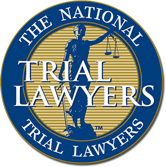- July 29 2016
- | Insurance

Hanson vs. State Farm was a case in front of the Federal Court of Nevada, and Hanson, the insured, was suing the insurance company, arguing that it committed bad faith. The District Court granted a Summary Judgment for Hanson.
The case arose after Hanson had sued someone who injured him for both negligent and intentional torts. The defendant/insured asked his insurance company, State Farm, to defend him. State Farm said it reserved its’ rights to deny coverage if liability resulted from an intentional act.
Then, after the insured admitted to negligently striking the other vehicle, he agreed to a settlement with Hansen, and he signed his rights against State Farm to Hansen. Hansen then brought a lawsuit against State Farm, stating that they had the duty to pay the settlement amount, saying that it breached the contract and acted in bad faith by failing to settle or act reasonably.
One of the claims was that it acted in bad faith because it put the insurance company’s interests in front of the insured’s interests by not providing independent counsel there were conflicts of interest. The court granted a Summary and Judgment in favor of Hanson, who stood in the shoes of the insured, on the issue of failure to provide independent counsel.
At that point in time, State Farm filed a Motion for Reconsideration to the Federal Court arguing that Nevada had never found like you have a that an insured had a right to independent counsel.
The Nevada Supreme Court took the issue upon itself and analyzed whether or not Nevada requires a right to independent counsel. So this decision came down on September 24, 2015, finding that, as we discussed, if there is actual conflict of interest, then there is a right to independent counsel in Nevada.
The Nevada Court found instead that they are going to follow the California approach and basically find that a reservation right does not create a per se conflict, but it requires a case-by-case analysis of whether an actual conflict exists. If an actual conflict of interest does exist, then the insurance company needs to provide independent counsel.
This decision gives Nevada some clarity on the right to independent counsel, but it doesn’t really say when exactly independent counsel needs to be provided because it’s on a case-by-case basis to determine whether there is an actual conflict of interest.
It’s hard to say what the impact of Hanson is going to be so soon after the decision. I believe that if the insured demands it and makes a good description of why there is an actual conflict of interest, the insurance company, which owes duties to its insured, should analyze that in good faith and should provide independent counsel. If not, the insurance company may be found to have been acting bad faith. So, as long as the insured presents a good faith conflict of interest, the insurance company should do the right thing and provide independent counsel.
How it plays out on the field, we don’t know yet.
But if there is found to be a need for independent counsel, the defendant can hire independent counsel at his own choosing, and the insurance company has to pay that counsel. It’s nothing about the rates or anything like that. It’s his decision. We don’t know what kind of rates will be approved.
Having independent counsel when you have a conflict of interest with your insurance company
As an experienced insurance-bad-faith firm, we take cases where the person who is being sued for a car accident believes that the insurance company is advocating for itself over and above the interests of the defendant-insured. And, failing to provide independent counsel or failing to settle in good faith for a reasonable amount within policy limits can be linked together.
As an example, if an Offer of Judgment comes to the defendant-insured that is within the policy limits, and the insurance company chooses to not pay that Offer of Judgment because it believes that it can prove that there is an exclusion that applies, (for example, an intentional act), the insurance company is failing to protect the insured defendant by paying that settlement. If this is your scenario, you should speak with an experienced insurance bad faith attorney because the insurance company is putting its interests ahead of the insured. It’s trying to enforce an exclusion that would benefit it, but to the detriment of the insured.



 With his master’s in insurance law, Patrick routinely helps individuals and businesses who are having issues with their insurance company. He also has extensive experience with personal injury actions, complex tort actions, product liability matters, and class actions. Patrick Leverty is rated AV by Martindale Hubbell (the highest rating) and has been granted membership in the Million Dollar Advocate Forum, and Multi-Million Dollar Advocate Forum. Patrick Leverty has been certified as a Personal Injury Specialist by the State Bar of Nevada. [
With his master’s in insurance law, Patrick routinely helps individuals and businesses who are having issues with their insurance company. He also has extensive experience with personal injury actions, complex tort actions, product liability matters, and class actions. Patrick Leverty is rated AV by Martindale Hubbell (the highest rating) and has been granted membership in the Million Dollar Advocate Forum, and Multi-Million Dollar Advocate Forum. Patrick Leverty has been certified as a Personal Injury Specialist by the State Bar of Nevada. [ 



